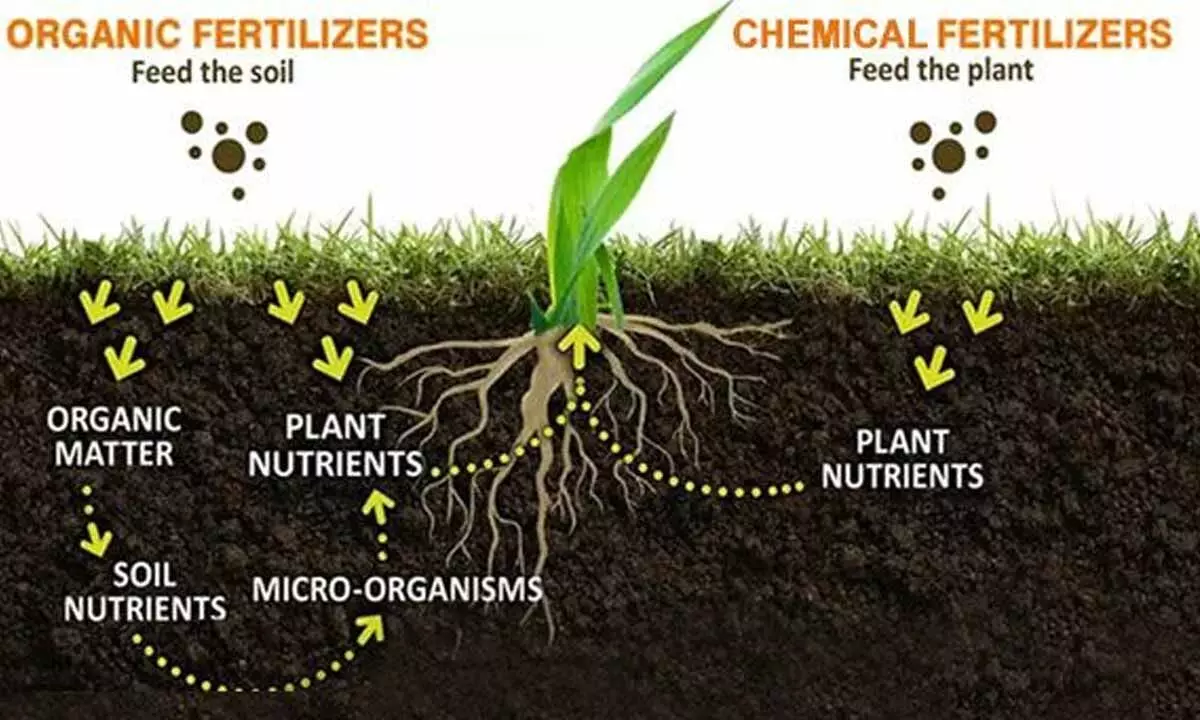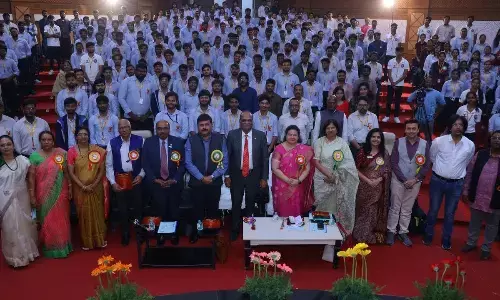Making agri practices climate-smart

Making agri practices climate-smart
This is something that I sometimes wonder.
This is something that I sometimes wonder. If G-20 members have to do what the rich developed countries have been telling us to do, what is the way out for developing countries to chart a new pathway to emerge out of the climate crisis?
It was dismaying to read reports of the firstday's happenings of the second Agricultural Deputies Meeting (ADM) of the Agricultural Working Group (AWG) under India's G-20 Presidency that began at Chandigarh on Wednesday last.
I wasn't expecting the G-20 agricultural deputies to endorse the vision, howsoever questionable, that has time and again been spelled out by billionaires like Bill Gates and by technology-rich conglomerates.
Focusing on four thematic issues – a) current challenge of food security and nutrition; b) sustainable agriculture with a climate smart approach; c) inclusive value chains and food systems; and, d) digitalisation for agriculture transformation – is on the same lines as various other initiatives across the globe. Just the other day, Chandigarh-based 'The Tribune' reported that India had signed the controversial UAE-American led Agriculture Innovation Mission for Climate (AIM4C). Accordingly, the $8billion initiative that India joined has 275 partners, including 42 governments. It also has PepsiCo and the meat producer JBS on rolls.
This follows the US President Joe Biden's programme to invest $3.1 billion for climate-smart agriculture, under which the US Department of Agriculture gets a grant for 141 experimental projects. Although his Agriculture Secretary Tom Vilsack calls it a 'transformational' new era for American agriculture, there are many others who question the misplaced reliance on sophisticated technology as the saviour. Tyler Lark from the University of Wisconsin-Madison has been reported as saying: "Agriculture is a huge contributor and has the potential to be a big part of the solution. The risk is that the potential carbon savings and greenhouse gas benefits are overstated."
When I look at the two aforementioned international initiatives to move towards environment-friendly agriculture and compare it with the food security challenges that the agriculture deputies of G-20 countries are coming up with, I don't see any formidable change being proposed in their understanding and a different but grounded perspective as well as approach. It is on the same flawed lines, thereby bringing out a severe drought that currently exists among bureaucrats.
With the first meeting that was held at Indore some weeks back also drowned in the same faulty projections, the second deputies meeting was expected to be opening up to innovative and progressive farmers and civil society representatives. But that didn't happen. This is essentially because bureaucrats continue to maintain a tight control.
Several studies have shown that as farming in the Green Revolution era got more industrialised, higher were the greenhouse gas emissions from agriculture. The non-profit Environment Working Group (EWG) estimates that if no drastic measures are taken, emissions from US agriculture will increase three times by 2050, increasing to 30 per cent, from the existing levels of 11 per cent.
I am amused when I see discussions around inclusive value chains and the food systems at a time when a spate of acquisitions and mergers have brought control and power in the hands of a few commodity giants. Cargill, the largest player, has already acquired 113 smaller companies and now controls 75 to 90 per cent of the global trade in grains.
A study by non-profit ETC has shown that over the years just four corporations control 60 per cent of the agrochemical markets and just two companies have 40 per cent control over the seed markets. It will, therefore, be interesting to know how the G-20 expects to make the agricultural supply chain inclusive.
In one of my earlier columns, titled: "India should use G-20 Presidency to rebuild food security, agri narrative" (Bizz Buzz, Feb 17) I have explained at length the implications of enhanced digitalisation, Artificial Intelligence and climate smart agriculture. I also believe in technology, but to avoid the risk of being repetitive, the overt emphasis on technology as the saviour is not going to be helpful for the simple reason that technology is actually a major part of the problem. While a magical technological package is being proposed, and with billionaires financing a global campaign to build up a narrative as if technology has the solutions, in reality the technological giants see a huge profit here given the proprietary control it can yield.
Nevertheless, fighting climate change is a two-way process. A lot of learning has to come from farming communities in the developing countries, which have, over the centuries, demonstrated the skills to live with nature. Instead of dismissing this as a sign of backwardness or of failure in applying the principles of modern scientific and technological prowess, much headway can be made if we appreciate, recognise and learn from the communities that had lived in tune with environment. Let's not be ashamed to learn from the communities in the developing world.
This reminds me of a dinner meeting I had several years back with the then British Minister for International Affairs, Hillary Benn. I was invited to a London meeting, which the Minister was having with leaders of the civil society. These stakeholders were discussing what initiatives Britain could undertake under DFID to promote sustainable farming practices in India. While everyone came up with a lot of suggestions, and when asked if I could also list a few expectations that Indian farmers would have from DFID, my answer was very simple. "I don't understand how is Britain qualified to suggest sustainable farming practices to India when its own agriculture is devastated. With hardly one per cent population remaining in agriculture, and that too faced with huge environmental consequences, my suggestion would be to instead to learn from the Indian farmers," I replied in a matter-of-fact tone.
Let there be a two-way channel for building sustainable agriculture practices. This of course was not acceptable to most of the civil society leaders present. While I acknowledge that what I said did hit the white supremacy (as I could feel), what surprises me is that the G-20 agriculture deputies too feel obligated to promote the agenda of the developed countries. They can instead propose and build up on the inherent strengths of the developing countries, where communities over the centuries have lived in peaceful coexistence with nature and environment. India can, and should, take a lead in rewriting the climate agenda for sustainable agriculture. It can't leave it to a team of agriculture deputies.
(The author is a noted food policy analyst and an expert on issues related to the agriculture sector. He writes on food, agriculture and hunger)











